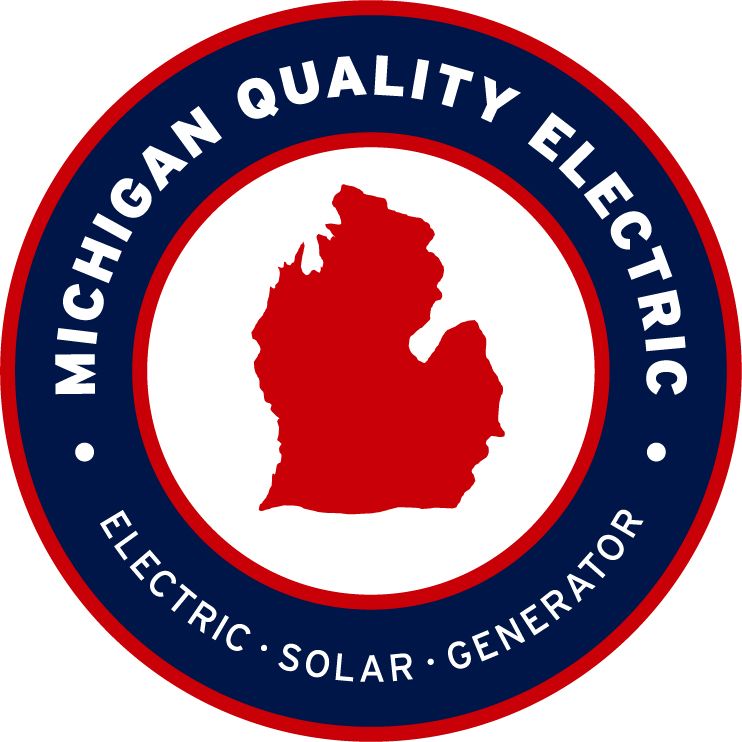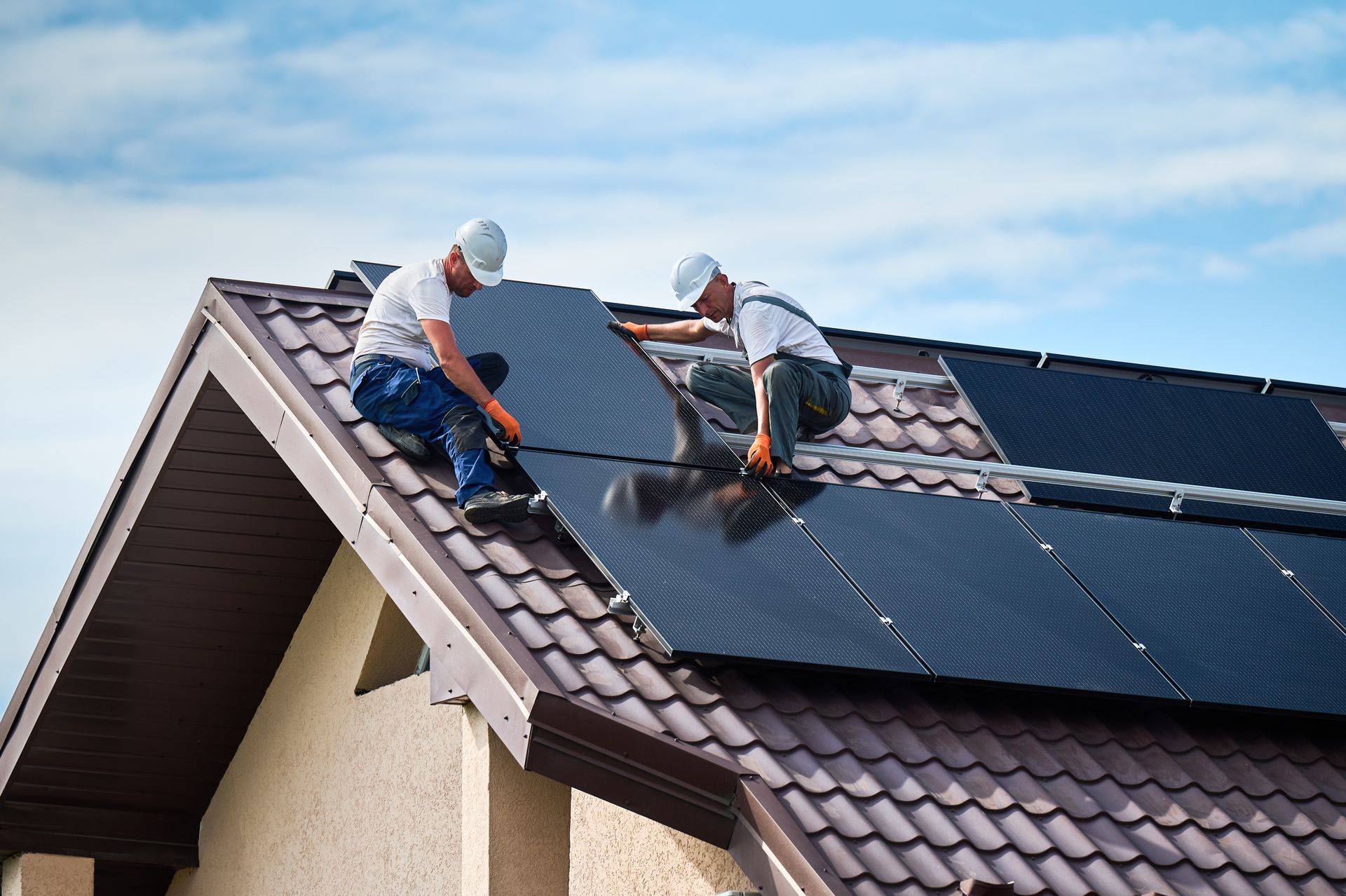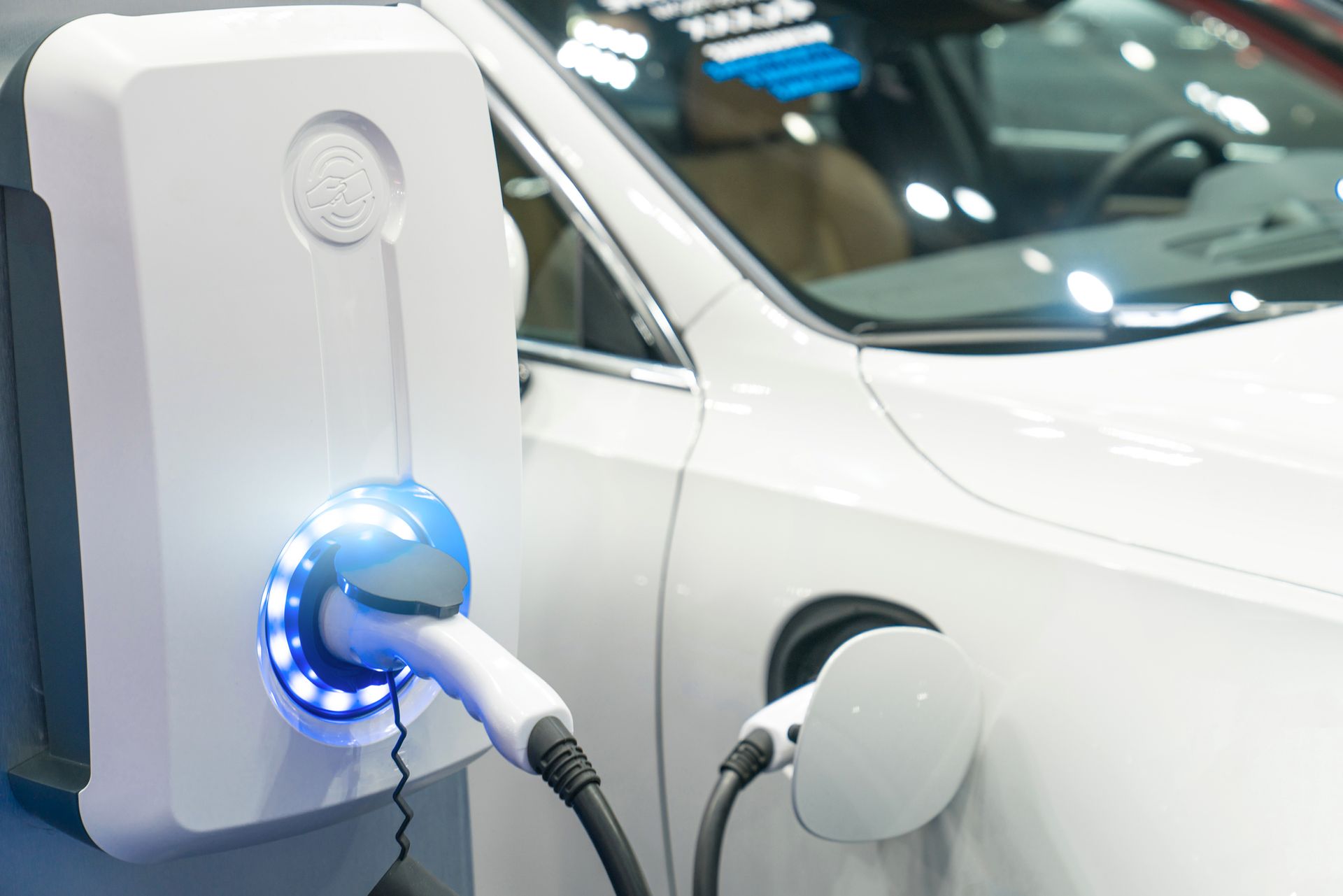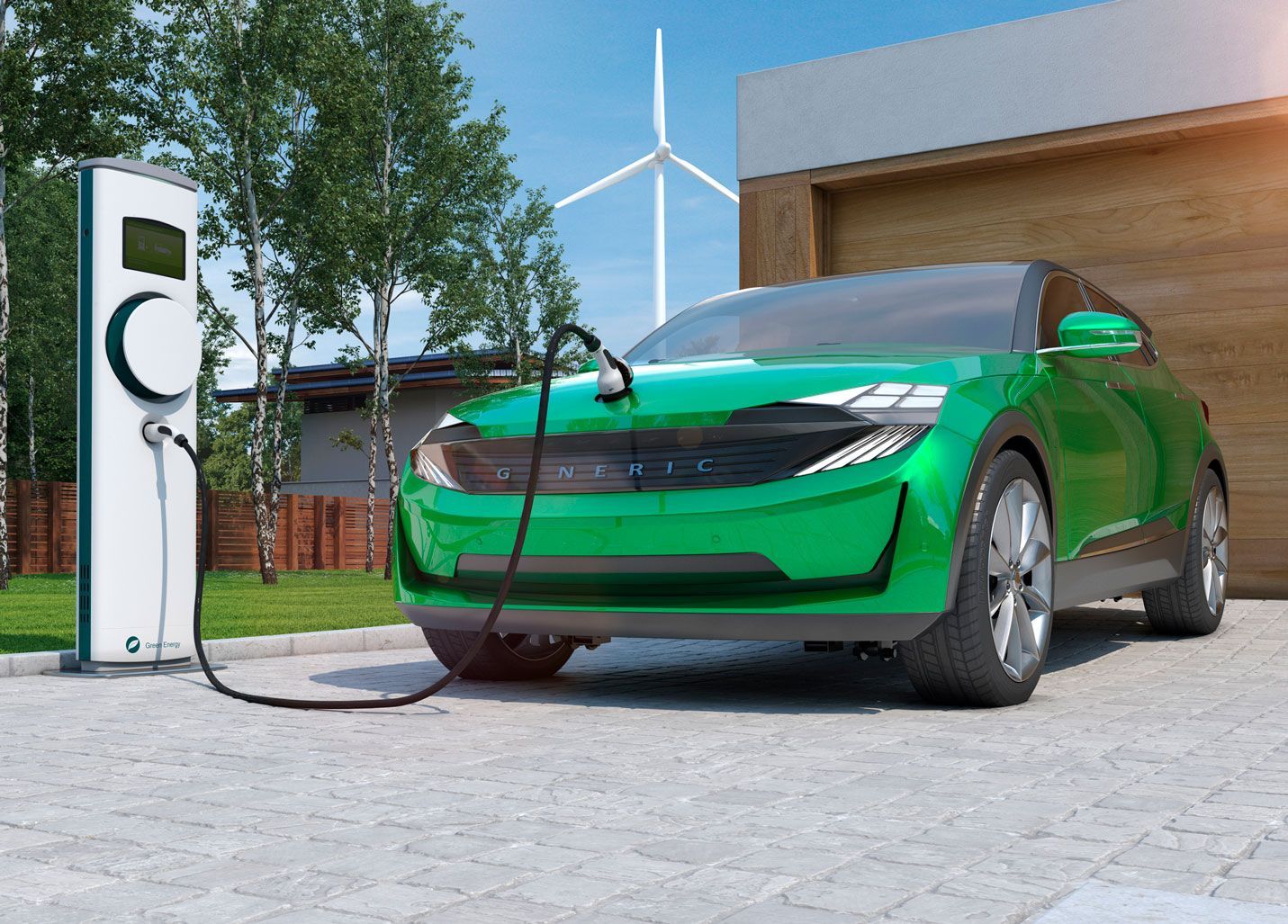BLOG
Blog

By Christine Hack
•
January 2, 2024
January is a great time to plan home improvement projects for the upcoming year! With that in mind, Michigan Quality Electric is excited to announce our participation in the upcoming Novi Home Show in Novi, Michigan, scheduled from January 19th to 21st. We warmly invite you to visit us in booth number 508 during this event where you can discover the latest advancements in solar energy options, energy-efficient technologies, generator options, and electrical services & solutions. Our knowledgeable representatives will be there to answer any questions may you have and will be able to schedule free consultations for any new projects you may have. The Solar Guys, Alex & Nick, will be present at our booth to discuss solar energy options with you and assist in scheduling personalized appointments. This is an excellent chance to take advantage of their expertise and explore the benefits of solar energy for your home to embrace a more sustainable future. Scroll down for all the details on the Novi Home & Garden Show! We hope to see you there! Christine Hack Marketing Director The Novi Home Show: With hundreds of exhibitors, The Novi Home Show is the one-stop destination in Southeast Michigan to freshen up your home. Discover new home improvement products and services for every type of project imaginable. Plus, speak with experienced, established area businesses available for consulting or hire. Dates & Times: January 19-21, 2024 Friday, January 19: Noon-7 p.m. Saturday, January 20: 10 a.m.-7 p.m. Sunday, January 21: 10 a.m.-5 p.m. Location: Suburban Collection Showplace 46100 Grand River Avenue Novi, MI 48374. Located south of I-96, between Novi Road and Beck Road Admission: Adult admission (ages 13 and over)—$12 Senior admission (ages 55 and over)—$10 Children 12 and under—free! Parking is not included with ticket purchase and can be purchased prior to the event at www.ticketspice.com. "$5 after 5” on Friday and Saturday - Admission tickets purchased after 5:00 p.m. on Friday and Saturday are discounted to only $5.00! Show Coupons: $2-off admission coupons available at novihomeshow.com, Facebook, Pinterest, Instagram, Great Lakes Ace and Home Depot stores starting January 1, 2024. Purchase Advance Tickets Online: Purchase advance tickets online and skip the line (and save 20%), sponsored by My Local Pros. Advance tickets purchased are good for any day of the show. Must be purchased online in advance to save 20%. Visit www.novihomeshow.com for tickets and the most updated information regarding this event!

By Alex Neeley
•
November 29, 2023
Energy is an essential part of our daily lives, powering everything from our homes to our smartphones. To measure and manage our energy consumption, we often use a unit called a kilowatt-hour (kWh). But what exactly is a kWh, and why is it important? In this blog, we will explore the basics of what a kWh is and why it matters in our modern world. What is a Kilowatt-Hour (kWh)? A kilowatt-hour, abbreviated as kWh, is a unit of measurement for electrical energy consumption. It represents the amount of energy consumed when a device with a power rating of one kilowatt (kW) operates continuously for one hour. In simpler terms, it's a way of quantifying how much electricity you've used over a specific period. Breaking it Down: 1. Kilowatt (kW): A kilowatt is a measure of power. It tells you how quickly energy is being used. For example, if you have a device with a power rating of 1 kW, it consumes 1 kilowatt-hour of energy in one hour of operation. 2. Hour (h): The "hour" in kWh represents the amount of time the device is using that power. If your 1 kW device runs for 2 hours continuously, it will consume 2 kWh of energy. To put this into context, consider some common household appliances: • A typical 100-watt light bulb consumes 0.1 kWh of electricity for every hour it's on. If you had 10 100-watt light bulbs that would be 1,000-watts of power equating to 1kw. If all 10 light bulbs were on for one hour that would be 1 kWh or electricity used. • A laptop with a 60-watt charger consumes 0.06 kWh per hour of charging. • A washing machine with a 1.5 kW rating will use 1.5 kWh for each hour of operation. Measuring and Billing Utility companies use kilowatt-hours as the standard unit for measuring electricity consumption and calculating your monthly bill. They determine your usage by monitoring the difference between the initial and final readings on your electricity meter. For instance, if your electricity meter reads 500 kWh at the start of the month and 600 kWh at the end, your total energy consumption for that month is 100 kWh. This is what you would be billed for. Why is Understanding kWh Important? 1. Cost Management : Understanding kWh helps you keep track of your energy consumption and, consequently, your electricity bills. By monitoring usage, you can identify ways to reduce costs, such as using energy-efficient appliances or adjusting your daily routines. 2. Environmental Impact : Being aware of how much energy you use can also help you reduce your carbon footprint. Lower energy consumption means fewer greenhouse gas emissions and a smaller impact on the environment. 3. Appliance Efficiency : You can compare the energy consumption of different appliances by looking at their power ratings in kilowatts and how long you use them. This allows you to make informed choices about which devices to use and for how long. 4. Renewable Energy : As the world shifts towards renewable energy sources like solar and wind, understanding your kWh usage can help you assess whether your energy needs can be met by clean, sustainable sources. Conclusion Kilowatt-hours (kWh) are a fundamental unit for measuring electrical energy consumption. By understanding what a kWh is and how it relates to your daily life, you can take steps to manage your energy consumption effectively, reduce your electricity bills, and contribute to a more sustainable future by using energy more efficiently. So, the next time you receive your electricity bill or think about the energy usage of your appliances, you'll have a better grasp of what those kilowatt-hours mean. Alex Neeley Solar Division Sales Manager

By Alex Neeley
•
November 13, 2023
Transitioning to solar energy not only benefits the environment but can also save you money in the long run. In this blog, we'll explore the various incentives and financing options available to make the switch to solar more affordable. Federal Tax Credits: • The Federal Investment Tax Credit (ITC) offers a significant tax incentive for solar installations. • Eligible homeowners can receive a tax credit of up to 26% of the installation cost (as of 2021). • Check for updates and consult a tax professional for the latest information. State and Local Incentives: • Many states offer additional incentives, such as rebates, tax credits, and performance-based incentives. • Check with your state's energy department or local utility for available programs. Solar Financing Options: • Cash Purchase: Pay for your solar system upfront, benefiting from the full cost savings over time. • Solar Loans: Finance your solar system with a loan and make monthly payments. • Power Purchase Agreements (PPAs): Lease solar panels and pay for the energy generated. • Solar Leases: Rent solar panels with the option to purchase at the end of the lease period. Solar Renewable Energy Certificates (SRECs): • In some states, you can earn SRECs for the electricity your solar panels generate. • These certificates can be sold to utilities, providing an additional source of income. Net Metering: • Net metering allows you to receive credits for excess energy your system generates and feeds back into the grid. • These credits can offset your future electricity bills. By taking advantage of these incentives and financing options, you can make the switch to solar energy more accessible and cost-effective. In our next blog, we'll explore the environmental impact of solar energy and how it contributes to a greener future. Alex Neeley Solar Division Sales Manager

By Nick Samuleson
•
November 13, 2023
Dear Community Farmers, As the stewards of our nation's land, you play a vital role in feeding our communities and sustaining our future. Michigan Quality Electric & Solar is excited to share a transformative opportunity that can empower your farm, help create affordable energy efficiency improvements, and have a lasting impact on our environment. We would like the opportunity to educate you on a government program called the USDA Rural Energy for America (REAP) Program . This program encompasses the use of grants, guaranteed loans, and combinations of grants and guaranteed loans to help Agricultural Producers and Rural Small Businesses purchase renewable energy systems and to make energy efficiency improvements. Rural Small Business Projects must be located in Rural Areas. Agricultural Producer projects have no rural limitations. For 2023 and 2024, REAP plans to grant $1.05 billion and has increased the maximum grant size from $250,000 to $500,000 for energy efficiency projects and from $500,000 to $1 million for renewable energy programs. What does this mean for you? This is a great opportunity for you to make substantial improvements to your business using a combination of grants and loans designated to help Agricultural Producers and Rural Small Businesses purchase renewable energy systems and make energy efficiency improvements. We understand that transitioning to solar energy may seem like a daunting task, but with the support of the USDA REAP and Michigan Quality Electric & Solar, it becomes not only feasible but financially advantageous. Further, we have the resources make the above benefits come to life. Working with Michigan Quality Electric & Solar on your renewable energy and / or solar project, you can expect the following benefits: 1. Substantial Cost Savings : Solar energy can significantly reduce your electricity bills, providing long-term financial relief for your farm. With REAP, you can access grants covering up to 50% of your solar project's cost, making it more affordable than ever. 2. Energy Independence : By harnessing the power of the sun, you'll gain independence from volatile energy markets and decrease your reliance on traditional fossil fuels. Solar panels can provide a consistent, reliable source of energy for your farm's needs. 3. Environmental Stewardship : Going solar reduces your carbon footprint, helping to combat climate change. By choosing renewable energy, you contribute to a cleaner, greener future, preserving our beautiful farmlands for generations to come. 4. Increased Property Value : Solar installations can enhance the value of your farm, making it more attractive to potential buyers and investors. It's an investment that pays dividends in the long run. 5. Innovation and Resilience : By adopting solar technology, you position your farm as an innovative leader in the agricultural industry and community and ensure your business's resilience in the face of changing economic and environmental conditions. 6. Trusted & Professional Service : Our 28 years in the business and complete in house electrical and solar service ensure that you will receive the benefit of our experience and expertise in delivering a quality project from start to finish. Don't miss this opportunity to power your farm with the sun, reduce your operational costs, and contribute to a healthier planet. Contact us today to see how, together, we can cultivate a brighter, greener future for your farm, your community, and the world. Call me today at (303) 250-6943 or email me at nick@michiganqualityelectric.com to sow the seeds of sustainability today and reap the benefits for generations to come. Nick Samuelson

By Alex Neeley
•
November 6, 2023
Installing a solar panel system on your property is an exciting step toward harnessing the power of the sun. In this blog, we'll guide you through the solar panel installation process, ensuring a smooth transition to renewable energy. Site Assessment: We b egin by evaluating your property's solar potential. Factors that will impact your system's performance such as sun exposure, shading, and roof condition are all taken into consideration to assess the solar potential of your property. Design and Permitting: Our expert solar consultants will meet with you by phone or in person to design a system tailored to your energy needs. Once the design is completed and approved by you, our team will work to o btain the necessary permits and approvals from local authorities. Solar Panel Installation: Our professional installers will mount the solar panels on your roof or on a ground-based racking system ensuring that the panels are positioned for maximum sun exposure. Inverter Installation: Our professional solar installers will i nstall an inverter to convert the DC (Direct Current) electricity generated by the panels into AC (Alternating Current) electricity for your home. Electrical Wiring: Our electricians will connect the solar panel system to your electrical panel through appropriate wiring ensuring safe installation and compliance with local electrical codes. Inspection, Approval & Activation: A final inspection, in which we obtain necessary approvals from local authorities or utility companies, is conducted to ensure the system meets safety and performance standards. Once these inspections are complete and approved, your system can be activated and you are converting sunlight to electricit y for your home or business! Monitoring and Maintenance: Use the monitoring platform provided with your system to track your solar system's performance. We are here to provide support with the manufacturer if needed. Keeping your system clean and free of debris will ensure optimal efficiency. Once your solar panel system is up and running, you'll start reaping the benefits of clean and sustainable energy. In our upcoming blogs, we'll explore topics like financing options, incentives, and the environmental impact of solar energy. Alex Neeley Solar Division Sales Manager

By Alex Neeley
•
October 31, 2023
When it comes to harnessing solar energy, the type of solar panel you choose can significantly impact your system's efficiency and performance. In this blog, we'll explore the most common types of solar panels and help you decide which one is the best fit for your needs. Monocrystalline Solar Panels • Made from a single crystal structure, giving them a sleek black appearance. • High efficiency, making them ideal for limited roof space. • Longevity and durability, with a lifespan of 25-30 years or more. • Higher relative cost compared to other types. Polycrystalline Solar Panels • Made from multiple crystal structures, resulting in a blue color. • Slightly lower efficiency than monocrystalline panels. • More affordable upfront cost. • Suitable for larger installations where space is not a constraint. Thin-Film Solar Panels • Flexible and lightweight, making them suitable for unconventional installations. • Lower efficiency compared to crystalline panels. • May require significantly more surface area for the same energy output. • Competitive pricing and versatility in design. Bifacial Solar Panels • Absorb sunlight from both sides, increasing energy generation. • Ideal for ground-mounted installations or raised installations. • Higher upfront costs but increased efficiency. The choice between these types of solar panels depends on your budget, available space, and energy requirements. Consider factors such as your location, climate, and aesthetic preferences when making your decision. In our next blog, we'll explore the installation process and maintenance tips to ensure your solar panel system operates efficiently for years to come. Alex Neeley Solar Division Sales Manager

By Alex Neeley
•
October 23, 2023
Solar energy has emerged as a clean and sustainable source of power that is reshaping the global energy landscape. In this introductory blog, we'll explore the basics of solar energy, its environmental benefits, and how it works. Solar energy is generated by capturing the sunlight that reaches the Earth's surface and converting it into electricity or heat. This process relies on solar panels, which are composed of photovoltaic cells that absorb sunlight and convert it into electrical energy. The principle behind this conversion is the photovoltaic effect, where the interaction between sunlight and certain materials generates an electric current. One of the primary advantages of solar energy is its environmental friendliness. Unlike fossil fuels, which release harmful greenhouse gases when burned, solar power produces zero emissions during operation. This makes it a key player in the fight against climate change and air pollution. Furthermore, solar energy is a renewable resource, as the Sun's energy is virtually limitless. It doesn't deplete natural resources or contribute to resource scarcity, making it a sustainable choice for meeting our energy needs. In upcoming blogs, we'll delve deeper into the various aspects of solar energy, from the different types of solar panels to installation and maintenance tips. Stay tuned to learn how you can harness the power of the sun for your energy needs. Alex Neeley Solar Division Sales Manager
Phone: (248) 449-4200 | Fax: (248) 449-4202
Email: info@michiganqualityelectric.com
Headquarters / Commerce Office: 4104 Pioneer Dr. Commerce Township, Michigan 48390
Macomb Office: 51410 Milano Drive, Suite 100, Macomb Township, Michigan 48042
Master license # 6210388 | Contractor license # 6109974 | D-U-N-S number: 962378993
Business Hours:
- Mon - Fri
- -
- Sat - Sun
- Appointment Only
24 Hour Emergency Service Available





Content, including images, displayed on this website is protected by copyright laws. Downloading, republication, retransmission or reproduction of content on this website is strictly prohibited. Terms of Use
| Privacy Policy




